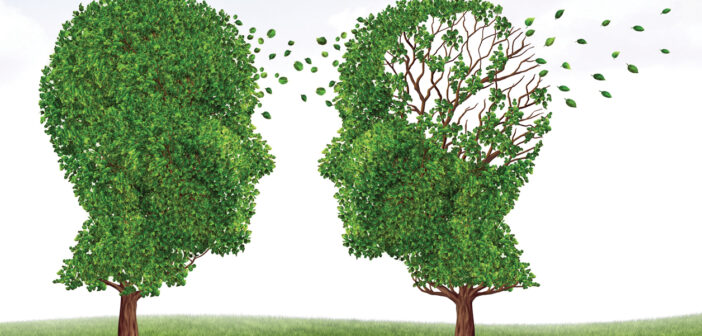Tips to Help Those Caring for a Loved One with Alzheimer’s Disease
Caring for a loved one who is struggling with Alzheimer’s disease and dementia can be rewarding but also an exhausting, stressful and thankless task. It takes large amounts of time and effort and many caregivers can become quickly overwhelmed if they have no one to turn to for help. They feel alone on the journey and oftentimes are, as family and friends tend to shy away from the situation; not because they do not want to help but because they don’t know how. The smallest and easiest thing to do is to just reach out via phone or a visit from time to time. That’s often all it takes to help a caregiver feel renewed and appreciated.
The smallest and easiest thing to do is to just reach out via phone or a visit from time to time. That’s often all it takes to help a caregiver feel renewed and appreciated.
 Here is a short list of simple things friends and family can do to ease the burden of those caring for a loved one with dementia and/or Alzheimer’s disease.
Here is a short list of simple things friends and family can do to ease the burden of those caring for a loved one with dementia and/or Alzheimer’s disease.
▸ Be there. Make it a point to keep in touch, to call or visit. Remember, the caregiver will be putting the majority of their focus and effort into helping their loved one; this means you will have to make the effort for contact.
▸ Educate yourself. Learn about the disease they are dealing with and you will be better able to understand what the helper is going through. With more education, you will become more patient when interacting with the afflicted person and may be able to ease the burden by giving the helper a “break.”
▸ Listen. When spending time with the helper, one of the best things to do is to simply listen. Be compassionate and be patient. The helper may have some pent-up frustration and angst to release. Allow them to vent and then, be reassuring. Never offer unsolicited advice and never make it about yourself.
 ▸ Help with everyday chores. Caregivers often have little time to do the daily things that are needed to keep a household or family running. Helping them with tasks such as grocery shopping, laundry, yard work or cooking a meal can go a long way in relieving their stress.
▸ Help with everyday chores. Caregivers often have little time to do the daily things that are needed to keep a household or family running. Helping them with tasks such as grocery shopping, laundry, yard work or cooking a meal can go a long way in relieving their stress.
▸ Help to locate resources. Many caregivers feel alone with their burden. By connecting them with help such as community transportation, adult day care programs, and support groups such as your local chapter of the Alzheimer’s Association, you can help them feel secure in their knowledge and support network. Why not take it upon yourself to connect with helpful programs if the caregiver desires it. They may not be able to find the time.
▸ Be their No.1 cheerleader. Support them, stand by them, and encourage them. Watch for signs of struggle, stress or depression and help them through it or connect them to professionals. Dementia and Alzheimer’s disease are a struggle for everyone involved and it is up to all of us to care for those in need and find ways to help the helpers.
With more education, you will become more patient when interacting with the afflicted person and may be able to ease the burden by giving the helper a “break.”
The Stages of Alzheimer’s Disease and What to Expect when Helping the Helper
 Alzheimer’s disease manifests in three stages of severity, each with its own set of symptoms. For most, the disease begins gradually and continues to worsen over time. Knowing what to expect allows for timely planning, understanding and patience through the journey.
Alzheimer’s disease manifests in three stages of severity, each with its own set of symptoms. For most, the disease begins gradually and continues to worsen over time. Knowing what to expect allows for timely planning, understanding and patience through the journey.
The Early Stage
In this stage, persons newly diagnosed are just beginning to exhibit symptoms – this can go on for years. The person will begin to exhibit memory loss such as forgetting important appointments, remembering names, recalling familiar faces, keeping track of money or medications, and exhibiting trouble with transportation. Experiencing intense feelings of denial, fear, anxiety, anger and depression are common for both the caregiver and the afflicted.
Persons in the early stage are usually still very independent and may need help with only a few daily tasks and with transportation. First and foremost, caregivers may have to address questions of safety. Can the task being performed cause harm? If so, the caregiver may need to step in. Make sure to assume the best about a person and assume they are able to handle the majority of situations. Your goal is to help only when needed or asked. It is often helpful to talk to the afflicted and come up with a “help signal” or phrase to communicate support is needed.
The Middle Stage
As the disease progresses, routine tasks and thought expression will become more difficult. A person with Alzheimer’s may begin to jumble words when speaking, become frustrated or angry while performing simple tasks such as dressing or cleaning, and acting in ways uncharacteristic of their personality. For caregivers, this stage begins to tax patience and flexibility. Schedules become hard to stick to as the sufferer needs more and more attention. A person with Alzheimer’s may exhibit emotional outbursts, changes in sleep patterns and loss of the ability to effectively communicate. The person may begin to experience hallucinations, delusions, paranoia and/or depression. Eating, dressing and grooming can become a daily battle. It is at this time when caregivers really begin to feel lost and alone. From this stage on, “helping the helper” becomes increasingly important and connecting them with support programs and networks can be a godsend.

The Late Stage
As the disease reaches the final stage, a caregiver usually needs to provide around-the-clock support for their loved one. A person in the late stage typically has trouble eating and swallowing, needs assistance with mobility, needs full-time help with personal care, and becomes increasingly vulnerable to infections and pneumonia. It is at this point that the goal of the caregiver becomes providing dignity and optimal quality of life. The caregiver and their support (family, friends) may need to make the decision to enter the afflicted person in a care facility or hospice. A caregiver may begin to exhibit feelings of grief and depression but feelings of relief are also not uncommon. At this stage, those helping the helpers must listen and be understanding. All of the emotion, stress and frustration that may have been held back throughout the duration of the illness may be released. Be the listening ear and shoulder to cry on, if needed, as this painful and difficult journey nears its end.














